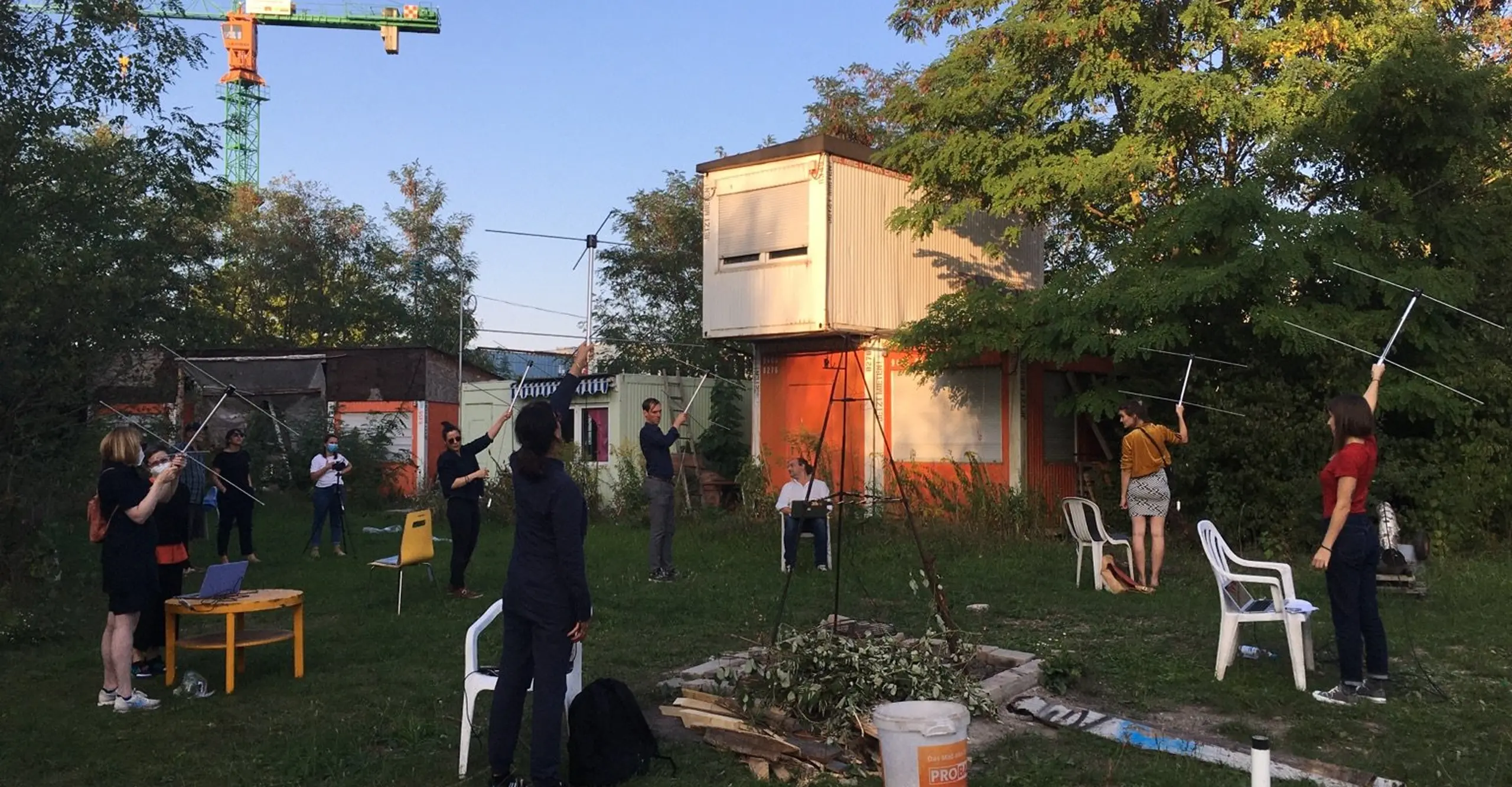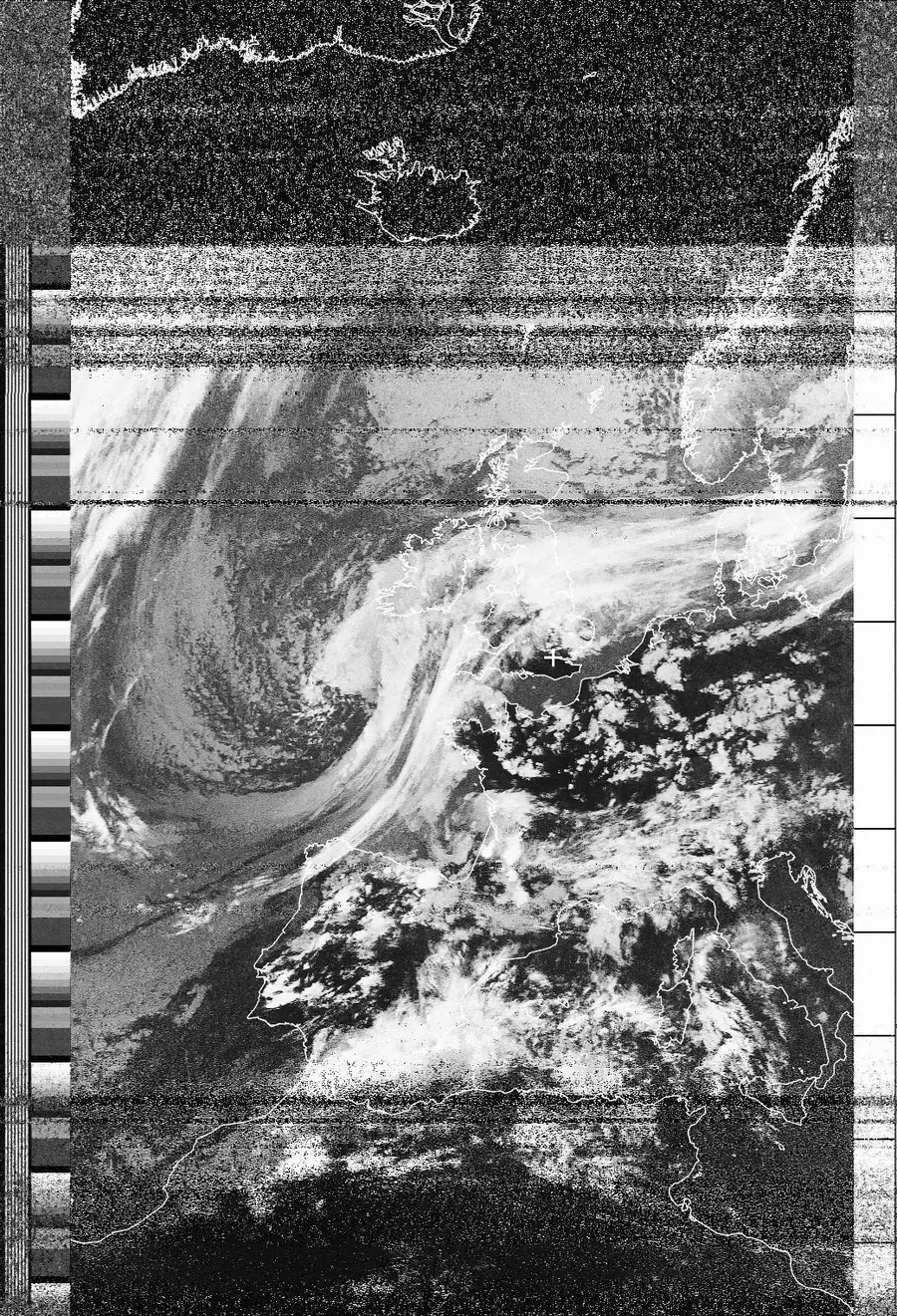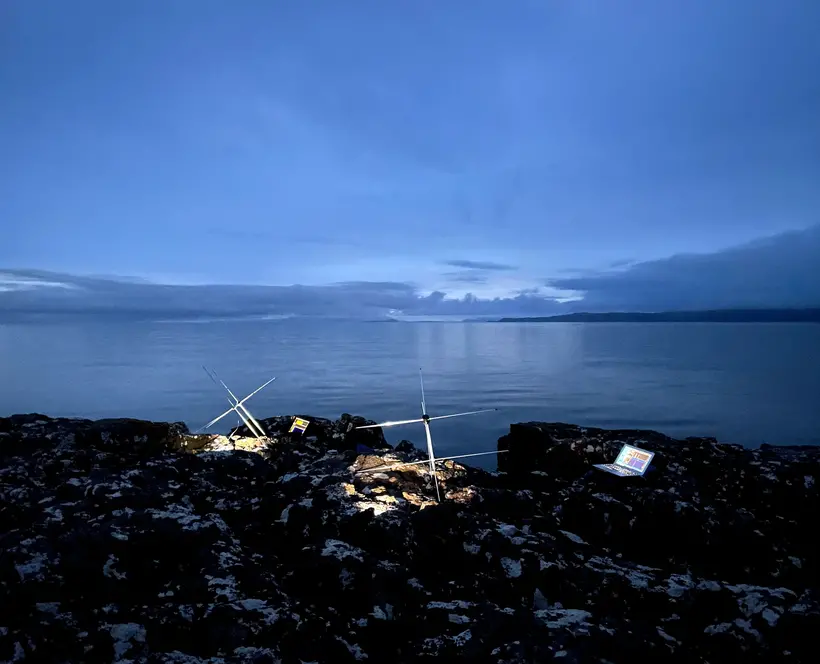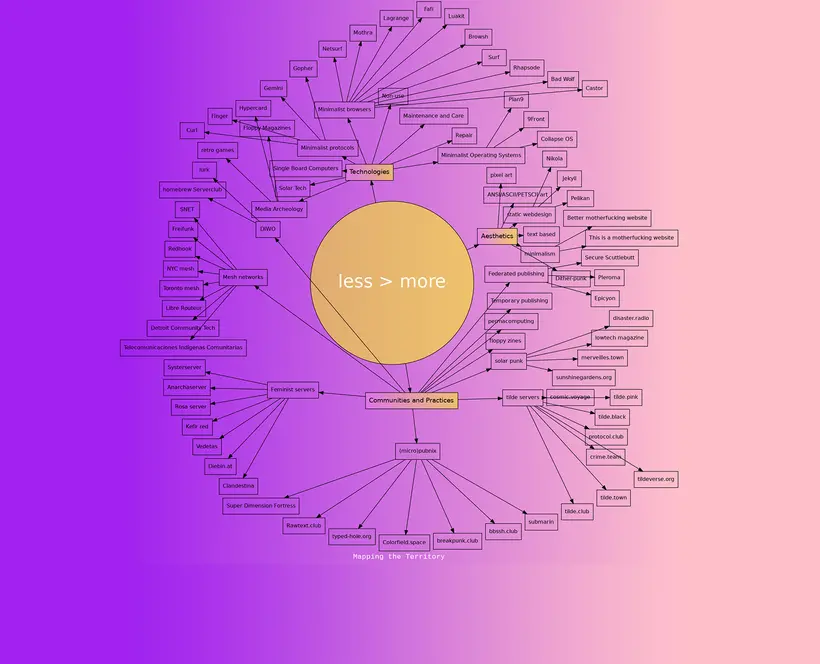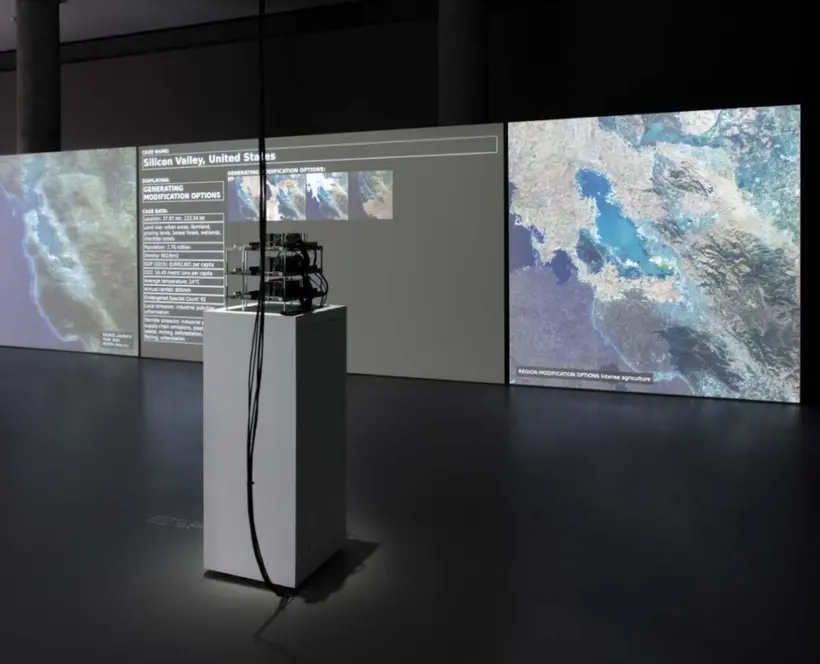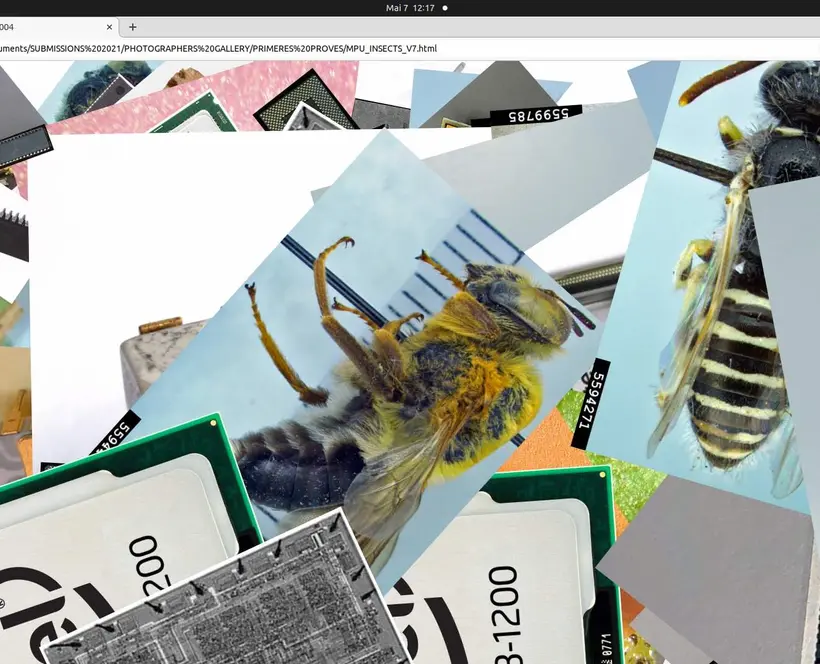Sophie Dyer (researcher and designer) and Sasha Engelmann (creative geographer) will lead an open-weather workshop in which participants will explore feminist approaches for capturing and decoding satellite transmissions. By the end of the workshop, each participant will have their own DIY satellite ground station to generate unique weather images from meteorological satellites. The cost of the workshop will enable participants to build and take home their own DIY satellite ground station.
Three free bursary places for anyone facing barriers to participation are available for the workshop, offered on a first come, first served basis. Please apply by emailing digital.programme@tpg.org.uk by 10th November, briefly stating your reason for applying for a bursary place. All information will be kept confidential and anonymous, and destroyed after processing within GDPR guidelines.
This workshop forms part of a programme of activities to coincide with the COP26 climate meeting in partnership with CCIC Tabakalera, in Donostia - San Sebastián, Spain.
What would I need to bring?
1. A laptop and a charger.
2. If using a Laptop with only USB C ports, you will also need a USB A to USB C adapter.
3. As part of the workshop will take place outside, please bring weather-appropriate clothing.
Open-weather is a feminist experiment in imaging and imagining the earth and its weather systems using DIY community tools. Co-led by researcher-designer Sophie Dyer and creative geographer Sasha Engelmann, open-weather encompasses a series of how-to guides, critical frameworks and public workshops on the reception of satellite images using free or inexpensive amateur radio technologies. In the tradition of intersectional feminism, open-weather investigates the politics of location and interlocking oppressions that shape our capacities to observe, negotiate, and respond to the climate crisis. In doing so, open-weather challenges dominant representations of earth and environment while complicating ideas of the weather beyond the meteorological.
